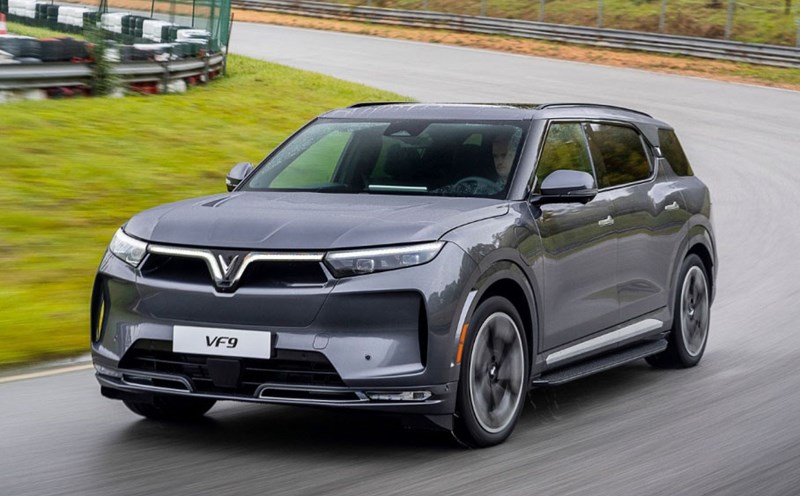Pressure weighs on auto industry
The European Union's (EU) new emissions regulations come into effect on January 1, 2025. European automakers are making bold strategic adjustments.
Under the new rules, the EU has sharply reduced CO2 emissions limits for cars. To avoid hefty fines – which could reach €15 billion ($15.76 billion) – at least 20% of carmakers’ sales must be electric. However, the latest figures from the European Automobile Manufacturers Association (ACEA) show that just 13% of cars sold in the region this year were electric.
"The gap between target and reality is huge," said Marc Mortureux, director of the French Automobile Industry Association (PFA).
This comes as the auto industry is grappling with a series of difficulties, including falling sales. The number of cars sold in Europe is now about 20% lower than before the COVID-19 pandemic.
In addition, Chinese car manufacturers with low-cost electric car models are increasingly dominating the market; support policies for buying electric cars in many European countries are being narrowed, reducing the appeal of this car line to consumers.
This major challenge prompted Carlos Tavares, CEO of Stellantis, to abruptly resign in December 2024, partly due to disagreements with the board over how to respond to the new regulations.
Increase gasoline car prices, decrease electric car prices - A "trade-off" strategy
In response to emissions regulations, many major automakers have raised prices on gasoline-powered models and held or reduced prices on electric vehicles. This is a strategy intended to reduce the appeal of high-emission vehicles and encourage consumers to switch to electric vehicles.
Stellantis, the parent company of the Peugeot brand, has increased prices on all models in France, except electric cars, by up to 500 euros (about 13 million VND).
Renault also increased the prices of some petrol models, such as the Clio SCE 65, by 300 euros (about 7.8 million VND), while keeping the prices of hybrid versions unchanged.
But there are risks to this strategy. “Raising the price of thermoelectric vehicles could reduce production, which would damage the entire supply chain,” said an insider at a major European carmaker.
Compared to gasoline-powered cars, electric cars have significantly lower maintenance costs. According to Consumer Reports research, electric cars do not require services such as engine oil changes, exhaust system maintenance, or transmission fluid changes, saving significant money and time.
To boost EV sales, Volkswagen has cut the price of its compact ID3 model to below 30,000 euros (about 790 million VND) in the German market. GlobalData forecasts that EV sales in Europe, including the EU, the UK and non-EU countries such as Norway, will increase by 41% by 2025 to 3.1 million vehicles.
But cutting prices to boost sales doesn’t come without a cost. In the UK, the car industry is expected to lose around £6 billion ($7.6 billion) this year, of which £4 billion will be used to subsidize electric vehicles.
Another solution that automakers are using is to partner with manufacturers that have a high percentage of electric vehicles to share emissions credits. For example, Suzuki has partnered with Volvo, a carmaker with a large number of electric vehicles, to reduce average emissions and avoid penalties.
With profits hit hard, carmakers are calling on the EU to reconsider its targets. “At some point, enough is enough,” PFA President Luc Chatel said at the Paris Motor Show in October.
The rise in petrol prices and the fall in electric car prices are a clear demonstration of the European auto industry’s strategic shift. But is this a sustainable long-term move, or just a temporary response to the pressure from emissions regulations?
Regardless, the trend toward electric vehicles is becoming increasingly clear, marking a period of strong transformation in the global auto industry.











